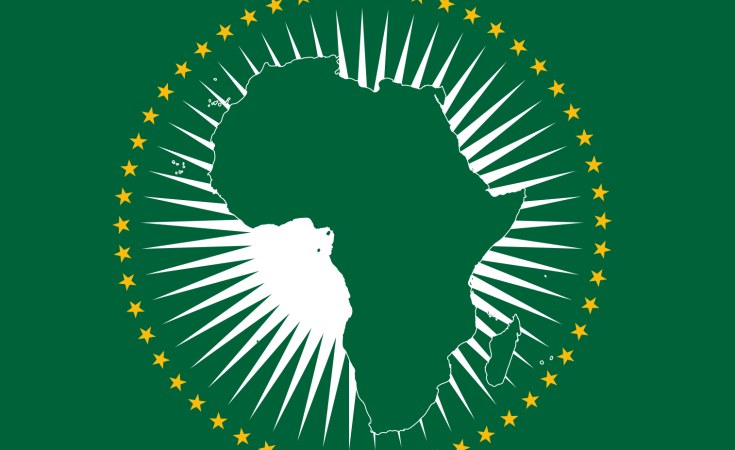Given current threats to safety and stability, Africa needs decisions that are properly drafted and funded.
Africa is contending with growing threats of violent extremism, entrenched localised conflicts that intersect with organised crime, coups and democratic backsliding. The African Union (AU) has a vital role in resolving these problems, but 20 years since its inception, the continental body still struggles to implement its peace and security decisions.
The problem isn't new. The AU Assembly has repeatedly urged its Peace and Security Council (PSC) to prioritise implementation, and did so again at the February AU summit.
The scale of the challenge is difficult to determine due to the lack of reliable data. However, a failure to enact several crucial decisions reflects the seriousness of the issue. Two of many examples are the PSC's decision to establish a sanctions committee in 2009, which over a decade later has finally been prioritised by the AU Commission. Another example is the 2020 AU summit resolution to deploy 3 000 troops to the Sahel, which remains on paper.
Since its establishment in 2004, the PSC has convened 1 168 times (as of 12 August), with over 90% of these meetings yielding multiple decisions on vital matters. Exact figures are lacking, but thousands of decisions were likely made over the past two decades. A significant percentage of these appear to have elicited no action.
A significant percentage of the thousands of PSC decisions appear to have elicited no action
The PSC has discussed non-implementation at all its annual retreats since 2007, and the problem appears on numerous meeting agendas. Recently, the PSC Committee of Experts and PSC ambassadors addressed the issue, and the council's secretariat is now developing a matrix to track decision implementation.
The Institute for Security Studies spoke to several policy actors about the causes of the crisis. One is the weakness in drafting outcome documents. At the United Nations Security Council (UNSC), member states typically initiate draft resolutions, whereas the PSC Secretariat usually writes its press statements or communiqués.
The UNSC practice allows the initiating member state to secure the buy-in of other countries before a resolution is passed. At the AU, decisions don't typically benefit from the intense behind-the-scenes lobbying to secure member state support, even though consultations still happen during the 24-hour window when draft decisions agreed in principle can still be amended.
Given the PSC's culture of making decisions after every deliberation and the secretariat's limited human resource capacity, the drafting process is often not thorough. Also, the high number of communiqués released monthly doesn't allow for rigorous cross-referencing with previous outcomes. Until the recent introduction of the AU Political Affairs, Peace and Security Department's repository, it was even harder to have reliable access to all past communiqués.
PSC decisions don't typically benefit from intense behind-the-scenes lobbying to secure member state support
Another issue is the convoluted wording of PSC decisions, which makes implementation difficult and inconsistent. Council decisions are made in a politically charged environment, where diverging interests lead to obscure language. And the current drafting culture doesn't seek to clarify complex text in previous outcome documents. These issues result in weak communiqués that capture the essence of outcomes but mostly lack political buy-in and support of PSC members.
Some decisions depart from existing or ongoing AU Commission processes, or don't link to any AU technical procedures to allow for role allocation and uptake. Others replicate those previously adopted or depart significantly from them. For example, the PSC's 17 February communiqué urging stakeholders to coordinate efforts in the Democratic Republic of the Congo, and armed groups to cease hostilities, merely reiterated demands contained in earlier decisions.
Decisions are also often made without allocating the resources needed for implementation. In some cases, funds are underused. For example, the 2020 decision to deploy troops to the Central African Republic was carried out, but underspending of European Peace Facility funds hampered the AU military observer mission's operations. No decision should be made by the PSC without first considering its funding implications.
Details should also be provided on who is responsible for taking action, timelines and reporting. But many PSC decisions are adopted without clarity on these vital aspects. AU organs and technical officers struggle to take on additional work not clearly assigned by the PSC. Those decisions that are allocated often receive priority attention from the designated AU structures.
PSC decisions are often taken without allocating the resources needed for implementation
Some PSC decisions fall through the cracks due to a lack of follow-up and accountability. In 2017 the council decided that its Committee of Experts should submit a decision implementation matrix six months before every AU summit, to help track progress.
The matrix, developed by the PSC Secretariat in 2022, seeks to avoid meetings on similar topics and remove duplicate decisions. It will dissect all peace and security communiqués, including decisions adopted, implementation status, financial implications and bearers of responsibility. However, it won't monitor or evaluate progress - which remains a crucial gap.
The PSC also needs a mechanism that binds it formally and legally to act without delay and holds leaders accountable for lack of action. Reactivating the AU Ministerial Committee on Counter-Terrorism and the PSC sanctions sub-committee could help speed up the implementation of decisions.
Hubert Kinkoh, Researcher, African Peace and Security Governance, ISS Addis Ababa
This article was first published in the ISS' PSC Report.


